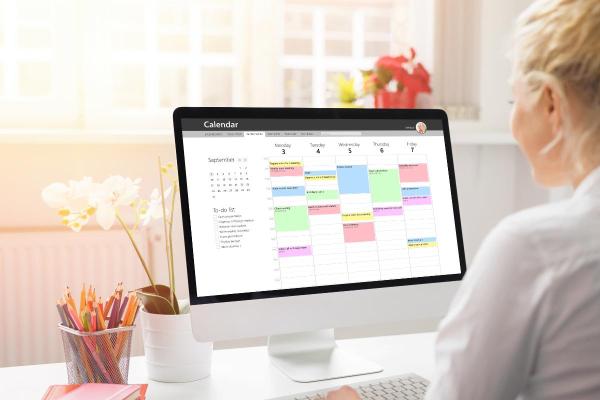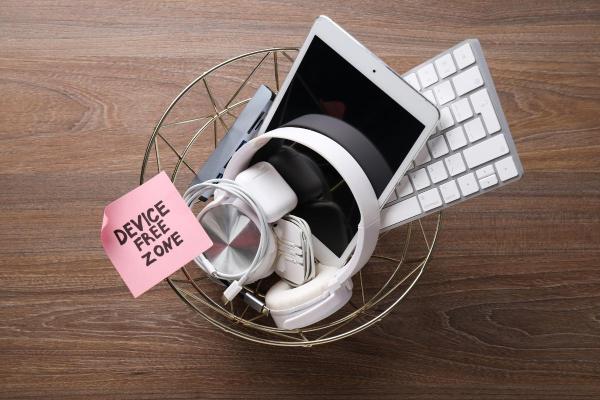How to Effectively Unplug from Work


In today’s fast-paced, always-connected world, finding ways to truly disconnect from work has become increasingly challenging. With emails, messages, and notifications at our fingertips, stepping away from the job can feel impossible—even outside of work hours. However, consistently staying “on” can lead to burnout, stress, and decreased overall well-being. To maintain a healthy work-life balance and recharge both mentally and physically, it’s essential to develop strategies for disconnecting.
In this oneHOWTO article, we’ll explore ten practical and effective methods to help you unplug from work, reduce stress, and boost your well-being, allowing you to return to work refreshed and more focused.
- Set boundaries
- Turn off work notifications
- Reduce screen time
- Learn to say
- Create a disconnection routine
- Incorporate relaxation techniques
- Pursue your passions
- Plan activities outside of work
- Foster personal relationships
- Engage in Physical Exercise
Set boundaries
The first tip to help you disconnect from work is to set clear boundaries and stick to a regular schedule. Make sure you start and finish at set times, and avoid working longer than planned.
Taking regular breaks and keeping a routine helps your mind understand when it’s time to switch off and enjoy your personal time. This habit supports a healthy balance between work and life, letting you fully relax when you're off the clock.

Turn off work notifications
Another simple yet powerful tip for fully disconnecting from work is to turn off work notifications once you’ve wrapped up for the day. Emails and messages can keep you mentally tied to work, causing stress and anxiety even outside of work hours. Turning off notifications is a great way to help your mind relax and focus on other activities, allowing you to truly unwind and recharge.
Want to know how to boost your energy levels at work? Check out our next article for practical tips on staying awake and engaged.
Reduce screen time
Another effective technique to disconnect from work is to step away from electronic devices entirely. Reducing screen time by taking breaks from your computer, phone, and other gadgets can help you fully enjoy your free time. Spend this tech-free time on hobbies, relaxation, or simply a mental detox from the screens you use all day for work. This break from technology will refresh your mind and make it easier to unwind.

Learn to say
It’s common to feel pressure at work, to take on more tasks than needed, or to dwell on issues that aren’t yours to solve. To truly disconnect and feel more at ease after work, it’s essential to learn to say “no” when necessary.
Setting boundaries like this is crucial for maintaining a healthy balance between your work and personal life. It also helps protect your time and well-being, allowing you to recharge and focus on what matters outside of work.
Create a disconnection routine
A great way to effectively disconnect from work is to establish a disconnection routine that you can practice both at work and outside of it.
For example, try ending your day with small tasks that help signal the close of your workday, like tidying your workspace, making a to-do list for tomorrow, or doing a brief meditation. This gradual wind-down eases your brain from "work mode" to relaxation, making it easier to transition into your personal time and fully disconnect.
Incorporate relaxation techniques
Incorporating relaxation techniques and stress-relieving activities into your daily routine is a powerful way to truly disconnect from work.
Practices like meditation, yoga, or mindfulness not only help you mentally detach from work but also support your overall well-being, both physically and mentally. These activities create a balanced routine that encourages relaxation and makes it easier to unwind after a long day.

Pursue your passions
Having hobbies or pastimes that genuinely excite you is essential for effectively disconnecting from work. Engaging in activities like painting, sports, music, cooking, reading, writing, or gardening allows you to step away from the work environment and invest time in what you truly enjoy.
This not only promotes relaxation and well-being but also helps you recharge by doing what brings you joy.
Plan activities outside of work
In line with the advice above, try planning activities outside of work.
Whether it’s meeting up with friends, engaging in a hobby, playing a sport, or simply going for a walk, spending time on non-work-related activities helps you clear your mind and recharge. Dedicating time to what you enjoy outside of work is key to refreshing your energy and maintaining balance.
Looking for fun family activities to embrace the winter season? Our next article dives into creative projects that everyone can enjoy together.
Foster personal relationships
Since so much of our time and energy goes into work, it’s easy to feel absorbed by it. One of the best ways to create distance from the work environment is to dedicate more time to personal relationships.
Spend quality time with family, friends, or your partner, prioritizing these interactions without allowing work to intrude. This practice not only strengthens your connections but also helps you stay grounded in what really matters, allowing you to fully disconnect and enjoy moments with the people closest to you.
Engage in Physical Exercise
Last but not least, engaging in regular physical activity is crucial for promoting your health and well-being. Exercise is an excellent way to reduce stress and effectively disconnect from work.
It releases endorphins, which can help you feel more relaxed while boosting your energy levels. Whether it’s going for a long walk, hitting the gym, or participating in yoga or meditation classes, these activities not only help you unwind from work but also enhance your overall daily well-being. Give it a try!
This article is merely informative, oneHOWTO does not have the authority to prescribe any medical treatments or create a diagnosis. We invite you to visit your doctor if you have any type of condition or pain.
If you want to read similar articles to How to Effectively Unplug from Work, we recommend you visit our Mental health category.







